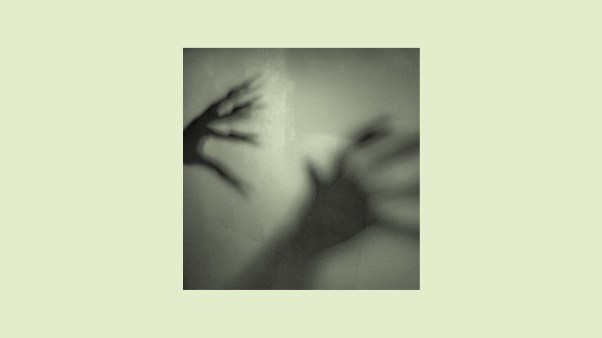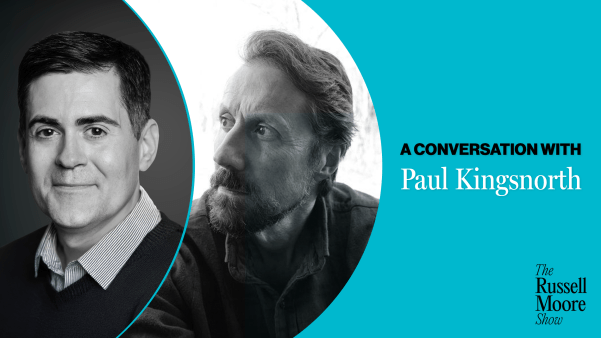
In one picture, Brenda Heist smiles, with round cheeks and dark brown eyes. In the next, taken 11 years later, her face is sad and sunken, framed with stringy blond hair. As disturbing as these side-by-side photos appear, more chilling is the story that catapulted her into the headlines last week.
In 2002, Heist dropped her children off at school and then mysteriously disappeared, leaving family and friends to think she had been abducted and likely killed. But no foul play had come to Heist. None, that is, except of her own making. Awash in self-pity over her broken marriage and finances, she hitchhiked with strangers from Pennsylvania to Florida, where she lived for the next decade, using the name "Lovie Smith," working as a day laborer and, later, a housekeeper. She often resorted to sleeping on the street. Last week, reportedly in part due to mounting health problems, she turned herself in at a Key Largo police station.
Her age at the moment when she erased her identity as a tidy suburban mom and became what some describe as a "beach-bum hippie" seems vital to this story. She left her family and her old life behind at 42.
Ah, to be an American woman in her 40s!
Admittedly, there's a lot of good that comes from four decades of experience. Our skins are thicker; we are more fearless. We prune our list of friends, keeping only the ones who make our spirits sing and no longer feeling the need to be liked by everyone. We don't worry quite as much about our appearance and just sigh with recognition when we are told that we are "more beautiful than we think." If we are mothers, we begin to see the adults our children are becoming, and there is deep joy in that. Plus, it's often in our 40s when the random, misshapen puzzle pieces of our professional lives can come together into a coherent whole.
But, make no mistake; being a woman in her 40s is no walk in the park, no matter how many articles declare "40 is the new 30" or even "40 is the new 20." In our 40s, our marriages change. The honeymoon is long over – as is the blur of activity that caring for very young children requires. It's in their 40s that more people get divorced. Mothers watch their children edge toward and enter adolescence. Month by month, we are forced to concede that those curmudgeons who warned: "Little kids, little problems, big kids, big problems" actually were right on. And it's in the decade of our 40s that college costs suddenly loom large and retirement no longer feels so far away.
In our appearance-obsessed culture, the effects of time become harder to ignore at 40. We gray. Our eyebrows and lashes thin. We start lingering in the drugstore aisle perusing expensive eye creams. Whether or not we've experienced childbirth's effects on our bodies, perimenopause wreaks mischief – sometimes havoc – on our moods, sleep patterns, and physical selves. As Paul Simon crooned, wrangling with midlife: we find ourselves asking "Why am I soft in the middle? The rest of my life is so hard!"
So it makes a tragic sort of sense that Heist was 42 years when she ditched her life. But what was her key mistake? Did she feel like she had permission to hurt others because she'd been hurt? Did the indignities of stretch marks and the unseen, everyday tedium of carpools and emptying the dishwasher overwhelm her? Did she not realize she was more beautiful than she thought?
Even before the people began to look for her, Heist was already a missing person. When she met a few homeless people at the park the day of her departure, she says she was crying and "feeling sorry for herself." Given the opportunity to leave the first half of her life behind, she said she "just snapped" and took it.
In his book Falling Upwards: A Spirituality for the Two Halves of Life, Richard Rohr writes that after spending the first part of our lives defining ourselves and setting ourselves up for a happy adulthood, we will experience crushing disappointment and loss. It might the loss of a job, a marriage, treasured friendships, or an identity that we have carefully wrought. Many of these changes may become the root of our "midlife crisis," particularly a struggle over identity. Rohr says, however, that what appears to be a falling down is actually an opportunity to fall upwards, deepen spiritually, and find new purpose. We aren't forced to take this opportunity; we are free to remain bitter, frustrated, and upset. Even at 40, many of us will have another 40 years ahead of us, though the final half a lifetime will be much different than the first.
Brenda Heist's disappearing act 11 years ago broke her children's hearts and thrust them into a new part of life. In interviews since Heist re-surfaced, her ex-husband appears to be a person who has "fallen upward." He says he's forgiven her and describes his gratitude for his children and family in this second part of his life.
Now it's Heist's turn – and all of our turns – to surrender our disappointment, self-pity, and fear to a loving God who desires to bring all of us missing persons home.
Grant is the author of Love You More: The Divine Surprise of Adopting My Daughter and MOMumental: Adventures in the Messy Art of Raising a Family. Disquiet Time, a book she is co-editing with journalist and author Cathleen Falsani, will be released in autumn 2014. Find her online at jennifergrant.com.
When we interviewed Steven Curtis Chapman last fall about how he and his family have dealt with the pain of losing a daughter, it was one of the most-read stories of the year on our website.
This fall, Chapman is hitting the road for “A Night with the Chapmans” tour with his entire family, including wife Mary Beth, who will share some of her own stories from the stage about finding hope in the wake of losing their daughter, Maria Sue, to a tragic accident at home two years ago. Mary Beth Chapman recently penned a book, Choosing to SEE (Revell), that chronicles their grief and still ongoing healing process. The book releases in September.
 During a panel discussion at my Christian college years ago, one scholar explained that bearing children is God's plan for womanhood, referencing 1 Timothy 2:15—"Women will be saved through childbearing." A graduate student stood up and addressed him tearfully, "I have just learned that I can never have children. Where is there room in your gospel for me?" The panelist paused for a long time. Then he said, in a broken voice, "I don't have a theology for that." There was no resolution, just pain.
During a panel discussion at my Christian college years ago, one scholar explained that bearing children is God's plan for womanhood, referencing 1 Timothy 2:15—"Women will be saved through childbearing." A graduate student stood up and addressed him tearfully, "I have just learned that I can never have children. Where is there room in your gospel for me?" The panelist paused for a long time. Then he said, in a broken voice, "I don't have a theology for that." There was no resolution, just pain.
What I witnessed that day was one of the rare moments when such pain is acknowledged out loud; the rest of the time, much of the Christian community can seem oblivious to the agony of women who do not want to be childless but find themselves aching as they read Bible passages celebrating motherhood and watch moms get their Mother's Day carnations at church each year. If we consider stats on infertility from the Centers for Disease Control, at least 1 in 10 women in our pews won't receive a carnation, no matter how desperate they are to become mothers.
During the anguished time when a woman from my church was trying to conceive, she asked for prayer from a Christian coworker. "She flat out told me that I wasn't getting pregnant because I didn't have enough faith. I wanted to hit her," my friend said. Another friend was repeatedly told, after each miscarriage, "It must be that God has a reason." She was sitting next to me in our small group when an older woman, herself childless, beamed at my pregnant belly and said, "What a blessing, so many babies in our church!" The older woman then looked around and said, "Isn't it wonderful, how God is blessing us?"—all the while benevolently unaware that my friend was not only grieving her lost children, but would most likely never have more. If I was uncomfortable, wanting to hide my belly and change the subject, my friend was shattered.
The panelist was right. We in the Christian community do not have a theology for childlessness, at least not one that's made its way to me and my circle of friends. Christians lift up stories of barren women in scripture who eventually conceive. We gloss over difficult passages like 1 Timothy 2:15, attributing them to an unenlightened age; or, like the panelist, embrace them at face value, not bothering to explore all the possible interpretations of such an assertion.
We owe it to women, and to the truth, to explore the complexities of such a verse and be sensitive to teachings and practices that relegate or ignore the women in our midst who struggle to bear children, no matter how much they desire and pray to.
Some scholars studying this 1 Timothy verse suggest that the presence of the definite article—which in English is "the"—means that the sentence should read "women shall be saved through the childbearing (or the Child-bearer)," a reference, perhaps, to Mary the mother of Jesus. Not that Mary saves us, but her willingness to reverse Eve's choice by submitting to the will of God played a significant role in everyone's salvation. Others say that the phrase could read "women will be saved by the birth of the Child"—a reference to Jesus himself, but that's not what ends up in many English translations, so that interpretation gives me pause.
There's also the possibility for the translation to read, "she shall be saved," as in woman, singular. This option presents a larger narrative with woman as an archetype, one who represents all of us. The broader passage in 1 Timothy makes reference to the fall, with "childbearing" an echo of the original curse. We get the sense that fertility itself—both the struggle to conceive and pain to give birth—is bound up the larger issue of suffering as a result of sin. But built into the curse is the possibility that suffering is part of redemption—perhaps not only the suffering of those who bear children but the suffering of those who do not.
In any case, following the phrase "saved through childbearing," the verse reads, "assuming they continue to live in faith, love, holiness, and modesty." In other words, there's a caveat. Whatever else childbearing does for me as a mother and Christian, it's an opportunity for spiritual growth…if I'm willing. Salvation is a process, a continued quest to become more and more like Jesus. Any discipline that can make us holier—including fasting or celibacy or marriage or raising children—can be part of the process. But it doesn't matter how many children I bear if I don't continue to live in faith, love, and all the rest. If it's not about Jesus, then I'm no holier than anyone else.
I confess I have not always been sensitive to these complexities. Child-free by choice during the first 13 years of marriage, I felt bewildered by the intense drive of others to become mommies. When my first baby was conceived effortlessly, I was more freaked out than ready. I glibly announced it to my small group, clueless about my friend's pain. But then in month four I had a scare—some signs that things may not be well—and the bottom fell out of my world. I suddenly experienced what so many Christian women have known in painful isolation: the carnations on Mother's Day could easily represent all the babies the world will never meet.
I didn't lose that pregnancy, but I began to lose my obliviousness. It made me aware that the church must have a theology of infertility and pregnancy loss. We cannot gloss or ignore difficult biblical passages. We must be wary of a cultural celebration that commercializes and sentimentalizes a harrowing and complicated journey. And through creating safe spaces—such as my friendship with the woman in my small group who has graciously, even after my blundering, invited me to share her sorrow—we must somehow affirm that there is a place in God's story for the brokenhearted.
Sarah Arthur is the author of eight books, including the devotional memoir Mommy Time: 90 Devotions for New Moms (Tyndale House Publishers, April 2013), from which parts of this article have been adapted. She lives in Lansing, Michigan, with her small son Micah and her husband Tom, pastor of Sycamore Creek Church. When she isn't writing and speaking, she can be found blogging at www.saraharthur.com.
Mary Beth has never taken the stage before in her husband’s almost three decades in music. “There are three things I told God I would never ever do: homeschool, adopt, and speak in public,” she says. “Well, we’ve already homeschooled, you know we’ve adopted, and now this fall I’ll be on stage speaking at Steven’s concerts.” She adds, “Now I’m telling God I will not go to Hawaii for three months.”
The tour, sponsored by Show Hope, the adoption agency/ministry founded by the Chapmans, will include warm-up act Caleb, featuring Steven and Mary Beth’s sons Caleb and Will Franklin. Tour dates and ticket info can be found here.








